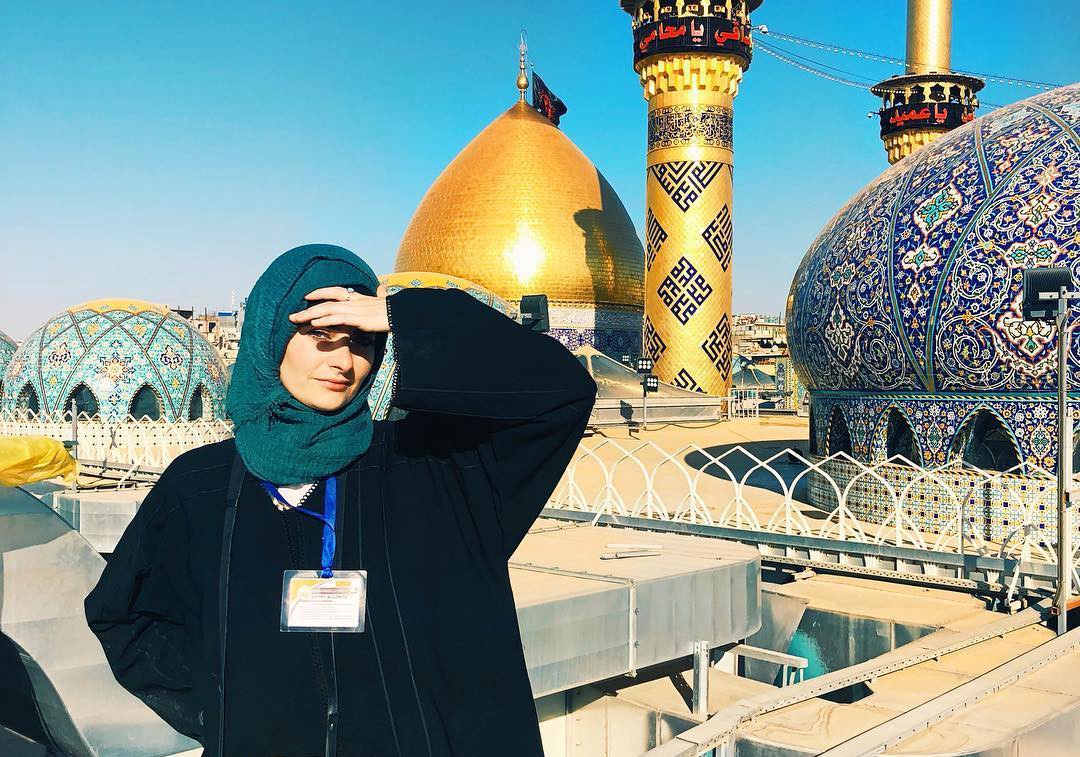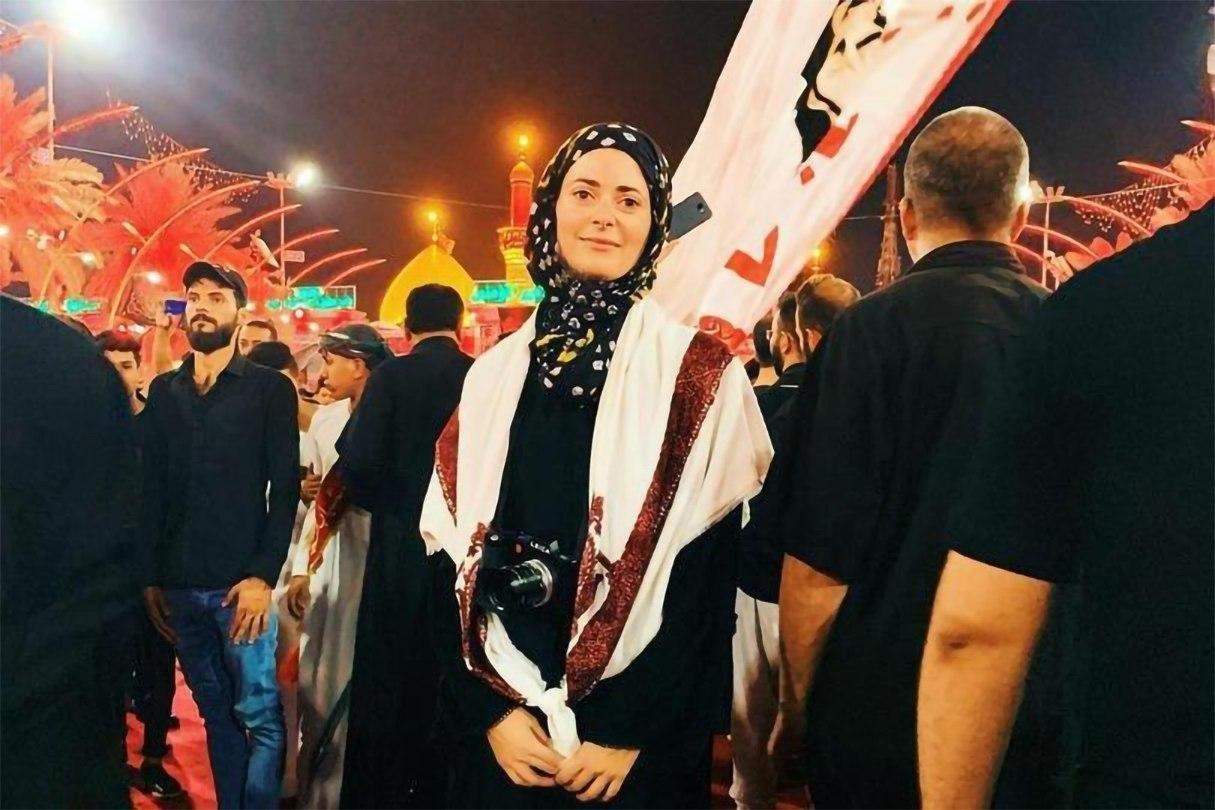There is no political or hidden agenda to Araba’een, she says, it is just a religious but more importantly, a humanistic commitment to social justice and empowerment.
“It’s a walk of peace…that has to be prioritized above everything else.”
Emily Garthwaite
Emily Garthwaite, a London-based photojournalist focusing on humanitarian and environmental issues, has recently travelled to the holy cities of Najaf and Karbala in Iraq, to complete her second walk for the Muslim pilgrimage of Arba’een. Speaking to Salim Kassam, The Muslim Vibe’s Chief Editor on this week’s podcast, she discusses both faith and religion, the media blackout of the world’s largest peaceful pilgrimage, and what contribution she has to offer the Western world to help raise awareness not only about Muslims, but about the inclusivity of Arba’een as well.
“This was the most lifechanging trip of my lifetime…I have never seen such genuine kindness.”
Arba’een marks 40 days after the day of Ashura and commemorates the death of Hussain Ibn Ali, the grandson of the Prophet Mohammad, who was killed alongside his family members and close companions in the city of Karbala in the year 61 after hijra. Every year, millions of pilgrims flock to Iraq to remember Imam Hussain and the stand he took against the tyrant Yazid. With numbers as high as 15 million this year, the numbers of pilgrims and observers increase every year, with not only Shia Muslims but Hindus, Christians, Buddhists, Sikhs, and others coming together to remember Imam Hussain and the lessons he taught on social justice and peace.
“Arba’een is kindness. Generosity. Integrity.”
Completing her second pilgrimage to Najaf and Karbala this year, Emily was first asked to witness and document Arba’een in 2017 by the Iranian Arts Institute, who wanted a photojournalist that could document the world’s largest annual gathering from a cultural and historical point of view, rather than from a religious standpoint. Understanding the monumental task she was faced with because of the lack of media coverage on Arba’een, Emily explained how important it was to normalize both the people and the country of Iraq in order to truly appreciate the beauty of Arba’een. Although attracting people from all corners of the world, almost all the pilgrims wear black in order to respect and mourn the death of Imam Hussain, and this one was one of the challenges she faced in not putting off Western onlookers. She questioned whether Arba’een would have a different image if everyone was dressed in white, but stressed the need to remember that despite the masses of black-clothed pilgrims, its important to not politicize Arba’een and remember the true essence of it: walking and praying in Karbala is a sort of allegiance to remember to stand up for justice and speak out against any oppression in the world.
“I’m not a member of press, I’m just a pilgrim.”
Identifying not as a Muslim and staying firmly away from the “white woman” narrative, Emily explained however that those identities did not matter during Arba’een. She admits that religion has always been a hard topic for her, but during her walk to Karbala she managed to see past that and to be touched spiritually about faith like never before in her life. When often discussing religion in the West, it can be hard to “see the good”, she admits. “But Arba’een is the good bit,” she says, and it helped her understand religion better as a source of inspiration and empowerment. Walking 80km to the city of Karbala, she felt like there was a build-up to something. Her tears, at the end of the walk, when she stood overlooking the city of Karbala on the roof of the shrine, were a product of each step she had taken both physically and spiritually on her journey during Arba’een. There was a realization on her part that she was a part of something greater and that there was truth in the feeling and emotions evoked from Karbala.
“This doesn’t have to be about religion, its more about the space that Imam Hussain provided for all of us”
One reason why she felt a particular necessity to document Arba’een is because of the large media blackout of it. Emily admits that it was extremely frustrating and almost hurtful, just how surprised people were reacting to the positive narrative she was showcasing to the world. Banned by Saddam Hussein and targeted relentlessly by ISIS, Arba’een remains one of the most resilient and powerful gatherings of a peaceful commitment to justice. Pilgrims, from all walks of life and from nations around the world, manage to come together once a year to remember the strength of peace.


